-
About
-
Outcomes
-
Conference
-
Events
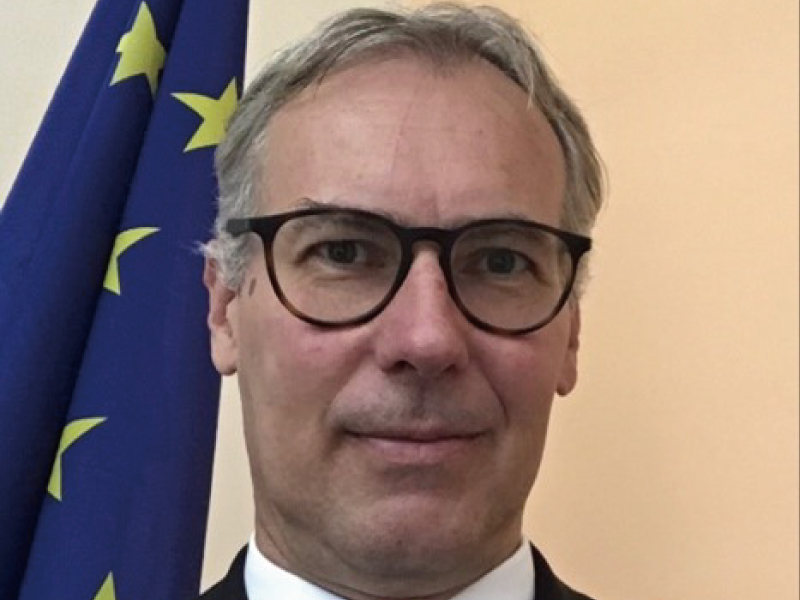
The Joint Research Centre is a research institute within the European Commission, the European Union’s executive branch. Christian Thiel heads the Energy Efficiency and Renewables Unit in JRC.C, which is the JRC’s Directorate for Energy, Transport and Climate. The JRC conducts research in search of science for policy. To carry out this mission, the JRC collaborates with research institutes in Europe and around the world. RD20 is one of those collaborations. We asked Dr. Thiel about the JRC’s role and his expectations for RD20.
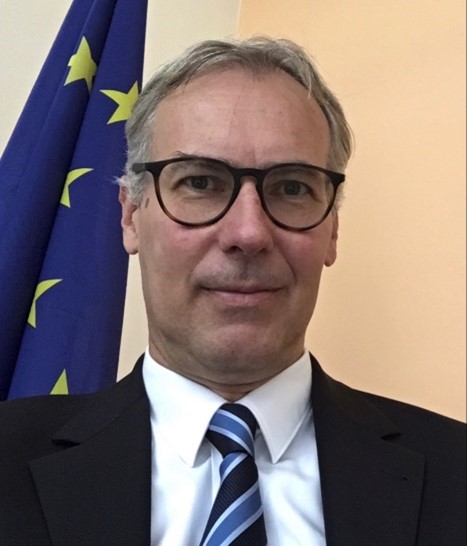
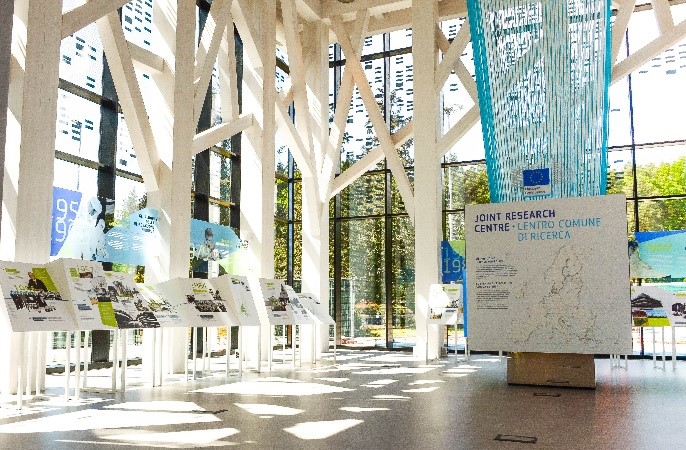
The JRC (Image 1), where Christian Thiel works, plays a vital role in the various stages of the policy review cycle. Working closely with other European Commission directorates, EU research institutes and agencies, and intra-European and international organizations and policy institutions such as RD20, he says that the JRC’s purpose is to provide independent, evidence-based knowledge and scientific content to support EU policies and have a positive impact on society. For this reason, all research is tied to policy. This is different from basic research as a purely intellectual pursuit. The Energy Efficiency and Renewables Unit that Dr. Thiel heads focuses on scientific evidence to improve energy efficiency and provide robust support for policies related to renewable energy.
There are several central pillars to this policy. One, innovation policy, involves a program of R&D frameworks called Horizon Europe. The EU supports R&D by funding innovation. It is also promoting greenhouse gas reduction and is involved in regulations and directives. The EU’s JRC, unlike basic research institutes, is linked to policy. Although the laboratory acquires and analyzes evidence data to flesh out the scientific underpinnings, it also brings this knowledge to bear on policy.
For example, the JRC has a solar panel testing facility, the European Solar Test Installation, which verifies the calibration and energy generation of photovoltaic devices (Image 2). ESTI is a state-of-the-art facility that sets international standards for evaluating the electrical performance and reliability of solar products. In addition to supporting standardization, it has set standards for the energy ratings of solar modules so the public and investors can easily understand them. According to Dr. Thiel, “With peak power performance and energy rating standards for solar devices, consumers can now know how much power their rooftop solar systems can generate.” These figures are publicly available.
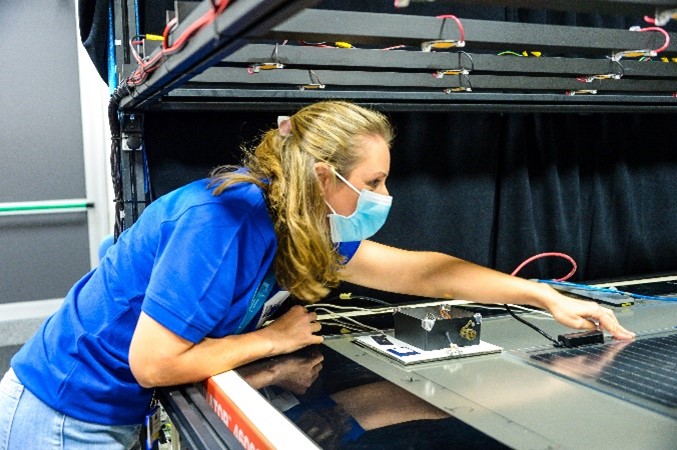
The JRC also invests in research to boost energy efficiency. For photovoltaic products, for example, double-sided solar modules have the potential to generate more power than conventional single-sided designs because they can react to light coming in from behind. A solar power simulator can test such photovoltaic panels on both sides (Image 3). SPIRE, a long pulse solar simulator, can test modules 1.5 meters by 2 meters in size. In combination with LED lights, it can test both sides of a panel at the same time. In addition to conventional silicon crystals, the JRC handles measurements of organic films with a perovskite composition.
Dr. Thiel says that as an EU-specific topic, he would like to focus on Europe’s Green Deal, the European Commission’s December 2019 announcement on combating climate change by aiming for zero greenhouse gas emissions by 2050 while maintaining industrial competitiveness. Although the Green Deal may not be unique to Europe, it deserves attention as a way to address climate change and environmental degradation on a global scale with a forward-looking perspective. The European Green Deal will transform the EU into a modern, resource-efficient, competitive economy. There are three things to confirm:
- that there will be essentially no net greenhouse gas emissions by 2050,
- that economic growth is independent of and separate from resource use, and
- that nobody, in any region, is left behind.
The JRC’s work will help implement the European Green Deal’s objectives. Through the JRC methodology of anticipation, integration, and impact, policy makers will surely receive the best scientific information in a timely manner to support evidence-based decisions.
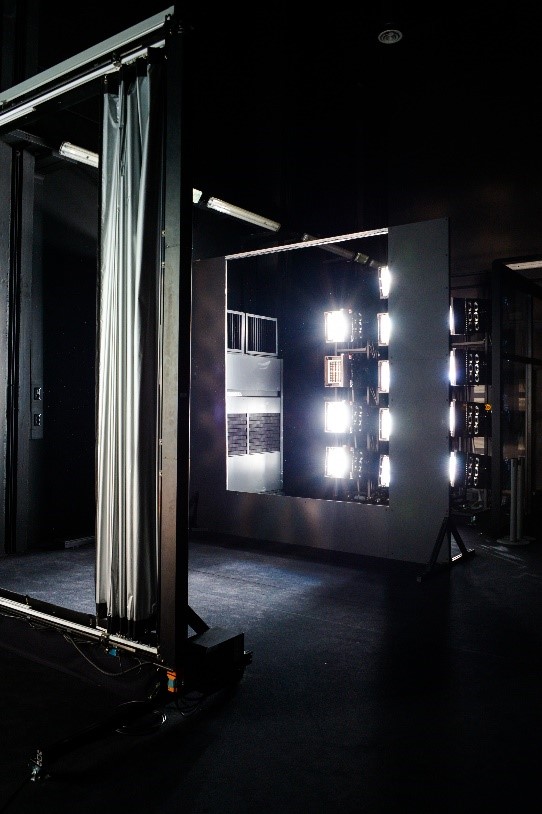
JRC Director General Stephen Quest gave a short talk at the Leaders’ Session during last year’s RD20. He explained how the EU’s concrete actions have been accompanied by scientific evidence to create an acceptable, secure, and sustainable energy mix that will transform the EU’s economy into a climate-neutral one by 2050.
He also touched on the role of broad public acceptance and citizen participation, which he said are key to incorporating climate-friendly, climate-neutral solutions. In this context, he said, the JRC welcomes the RD20 as a framework for promoting international cooperation in clean energy.
Dr. Thiel moderated the Technical Session at last year’s RD20 and provided information on renewable energy. He said, “The JRC will keep contributing to the achievement of RD20 objectives by continuing the excellent collaboration with leading research institutes in Japan and other countries as we work together to promote global standards for solar and hydrogen, while also making progress in our knowledge through other energy research. By working together to create common solutions, we will be able to quickly produce tangible results for RD20 initiatives.” He added that the JRC is ready to offer support by comparing best practices and institutes, supporting collaborative research, and engaging in exchanges between researchers. The JRC is also involved in a summer school. This July, it sent students and senior researchers there for the first time.
Dr. Thiel applauds RD20 for the excellent organization of the Technical and Leadership sessions. He commends how the Japanese team have handled matters and said the discussions and networking have gone quite well. He particularly appreciates the hybrid format in the midst of the pandemic. He was further impressed that the proposed actions have taken shape and resulted in the creation of solar and hydrogen task forces and the creation of the summer school.
At this year’s RD20, Dr. Thiel will be moderating the Technical Session on environmental and life cycle assessment as it relates to solar power. He said that during this session, JRC researchers will present on agri-solar technology. Dr. Thiel will speak about examples of innovative solutions that simultaneously provide energy and food, thus supporting sustainability from a bio-diversity perspective.
When asked about ideas to further develop RD20, Dr. Thiel said that discussions at RD20 meetings are more collaborative and that organizations participating at RD20 can take joint action. He sees the task forces as a good example whose successes we can build upon to turn ideas into action. Dr. Thiel would like to brainstorm with people from other RD20 institutions on topics such as social perspectives, behavioral science, and citizen participation while keeping personal opinions out of the discussion. As for citizen participation, he believes there are some wonderful examples in Europe’s energy communities that he would like to introduce.
Kenji Tsuda Editor in Chief, Semiconductor Portal